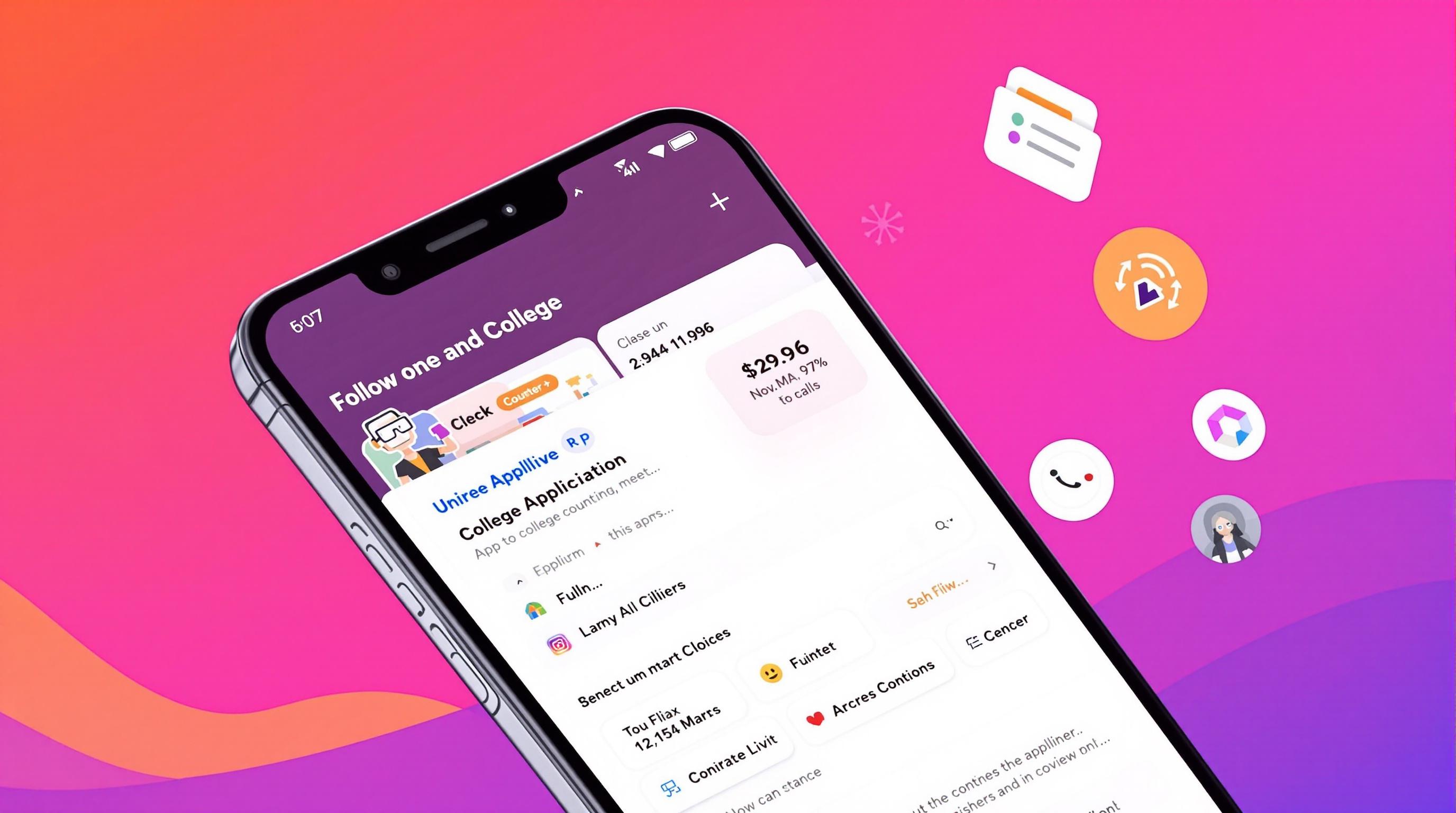Related Articles
- 7 Game-Changing Student Budget Apps Released Since 2019 That Slash College Living Expenses
- The Silent Toll of Campus Health Services: Unpacking the Overlooked Expenses Students Face Beyond Tuition
- Examining Virtual Tour Accessibility Challenges for Neurodiverse and Disabled Students in Higher Education
- The Role of Virtual Campus Visits in Shaping Student Identity and Community Belonging from Afar
- How Procrastination Patterns Shape College Application Outcomes: Analyzing the Role of Timing in Student Decisions
- How Seasonal Patterns Influence Decision-Making Mindsets During Critical College Application Phases
8 Overlooked Extracurricular Strategies That Boost Your College Application Timeline Results Beyond Academics
8 Overlooked Extracurricular Strategies That Boost Your College Application Timeline Results Beyond Academics
8 Overlooked Extracurricular Strategies That Boost Your College Application Timeline Results Beyond Academics
Section 1: The Power of Long-Term Commitment
One often underestimated approach to enhancing your college application is demonstrating sustained involvement in a single extracurricular activity. Admissions officers tend to appreciate dedication and growth over time rather than a broad but shallow engagement. Long-term commitment signals perseverance, passion, and the ability to balance responsibilities—traits highly sought after in potential students.
For instance, an applicant who has participated in their school’s debate club for four years and assumed leadership roles may stand out more vividly than one who has dabbled in multiple clubs without clear depth. This longevity allows for personal development within the activity, showing genuine interest and achievement.
Moreover, extended participation often affords opportunities for mentorship, scholarship, or project initiation, all elements that can enrich your narrative. As noted by Harvard’s admissions guidelines, consistent dedication can “illustrate character and personal investment” (Harvard College Admissions, 2023).
Section 2: Community Service with a Sustainable Impact
Volunteering is a common extracurricular endeavor, yet the impact of your contributions can vary widely. Colleges increasingly value service that results in tangible, lasting benefits rather than one-off events. Developing or joining community projects that address ongoing local needs demonstrates social awareness and initiative.
Applicants who engage in service activities that incorporate sustainable elements—such as environmental clean-ups combined with educational campaigns—show an understanding of systemic issues. This elevates the quality of the experience from mere participation to leadership and problem-solving.
According to the National Association for College Admission Counseling (NACAC), applicants presenting meaningful community engagement may “highlight maturity and an empathetic perspective that enriches campus life” (NACAC, 2022).
Section 3: Starting a Personal Passion Project
Initiating your own project outside of school environments offers a unique avenue to showcase creativity and self-motivation. Whether it is writing a blog, creating educational videos, or developing a small business, these endeavors reflect an applicant’s capacity to innovate independently.
This strategy allows students to explore interests deeply without the constraints of organized clubs or teams. It also provides concrete examples of problem-solving skills and the ability to manage and sustain projects over time.
Colleges regard entrepreneurial ventures and personal projects as valuable indicators of initiative. The University of California system, for example, encourages applicants to “highlight unique experiences and unfettered interests” to build a compelling case for admission (UC Admission Office, 2023).
Section 4: Leveraging Internships Beyond the Norm
Securing internships related to your field of interest can significantly enhance your application by offering practical experience. However, it’s the quality and reflection on these internships that truly add value, rather than simply listing them.
Instead of short-term roles focused mostly on observation, seek internships that allow for active participation and the development of tangible skills. Reflecting on your contributions and what you have learned demonstrates maturity and a proactive approach to career development.
The Chronicle of Higher Education emphasizes that hands-on experiences “can distinguish candidates by linking academic goals with real-world applications” (Chronicle of Higher Education, 2021).
Section 5: Cultivating Artistic Expression
Artistic activities such as music, painting, theater, or creative writing often receive less emphasis in the STEM-focused application landscape but remain critical for holistic development. These pursuits enhance creativity, emotional intelligence, and cultural awareness.
Applicants who invest time refining their artistic talents and participate in exhibitions or performances demonstrate commitment and personal expression. Additionally, interdisciplinary projects that combine the arts with technology or social issues may amplify this impact.
Research from the Arts Education Partnership has demonstrated that engagement in the arts “correlates with improved academic outcomes and social development” (Arts Education Partnership, 2020), making these activities a valuable component of college applications.
Section 6: Participating in Academic Competitions Strategically
Participation in competitions related to your academic interests can serve as a beacon of both passion and excellence. However, the key is strategic involvement—choosing contests that are well-known and relevant to your future studies.
Rather than entering numerous minor competitions, focusing on a few prestigious contests enables deeper preparation and a higher chance of distinction. Success or notable performance in these arenas signals your competitive spirit and mastery of subject matter.
The Princeton Review suggests that “scholastic competitions can validate academic prowess and distinguish applicants” in a crowded field (Princeton Review, 2022), underlining their importance when selected judiciously.
Section 7: Building International or Cross-Cultural Experiences
In our increasingly globalized society, international exposure or engagement with diverse cultures enriches a student’s outlook and adaptability. Such experiences foster open-mindedness and intercultural communication skills, attributes highly prized by admissions committees.
This can be achieved through study abroad programs, cultural exchange initiatives, or even virtual collaborations with peers worldwide. The depth of reflection on these experiences is crucial to convey genuine personal growth.
According to a report by the Institute of International Education, students with global experience tend to “demonstrate enhanced problem-solving abilities and cultural sensitivity” (IIE, 2023), qualities that resonate with college values.
Section 8: Engaging in Leadership Roles Within Smaller Groups
Leadership is often associated with prominent titles in large organizations, but taking active leadership in smaller or less obvious groups can be equally impactful. This includes leading a study group, organizing community events, or chairing committees in niche clubs.
Such positions offer intimate environments to develop interpersonal skills, responsibility, and project management. Admissions officers appreciate leadership that is authentic and exercised in various contexts over merely high-profile positions.
The National Association of Secondary School Principals underscores that “leadership in diverse settings cultivates versatile and resilient applicants” (NASSP, 2022), encouraging students to seek leadership where they can make the most difference.
Section 9: Integrating Technology into Extracurricular Pursuits
With the digital age reshaping education and industries, incorporating technology into extracurriculars can markedly enhance your profile. This might involve coding clubs, digital media production, or even organizing online events.
Engagement with technology not only develops computational skills but also reflects adaptability and modern literacy. Innovating or improving digital solutions in community or school projects further underscores problem-solving capacity.
The Education Technology Journal notes, “Technological competence within extracurricular activities predicts success in STEM fields and leadership potential” (EdTech Journal, 2021), emphasizing its growing importance in applications.
Section 10: Prioritizing Mental Health Advocacy
Mental health awareness is becoming an essential component of campus life, and students who contribute to this dialogue demonstrate empathy and leadership. Initiatives might include founding awareness campaigns, peer counseling groups, or organizing workshops on resilience and wellbeing.
Addressing mental health issues not only benefits communities but also reflects maturity and socially conscious leadership. It shows that the applicant values holistic health, a trait that can positively affect both college culture and personal success.
A study published by the American Psychological Association highlights that “engagement in mental health advocacy correlates with increased emotional intelligence and leadership qualities” (APA, 2022), reinforcing its significance in extracurricular portfolios.




